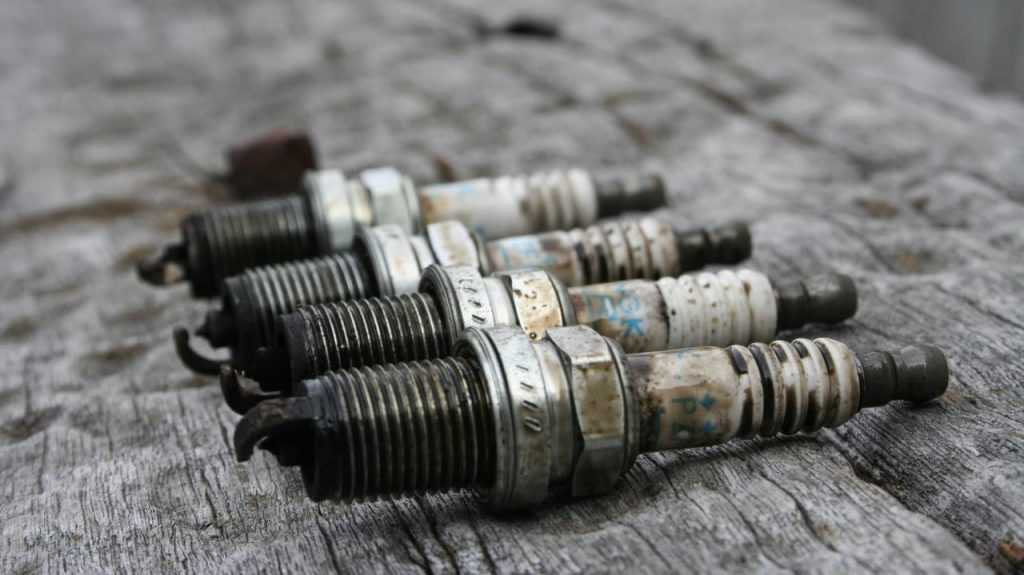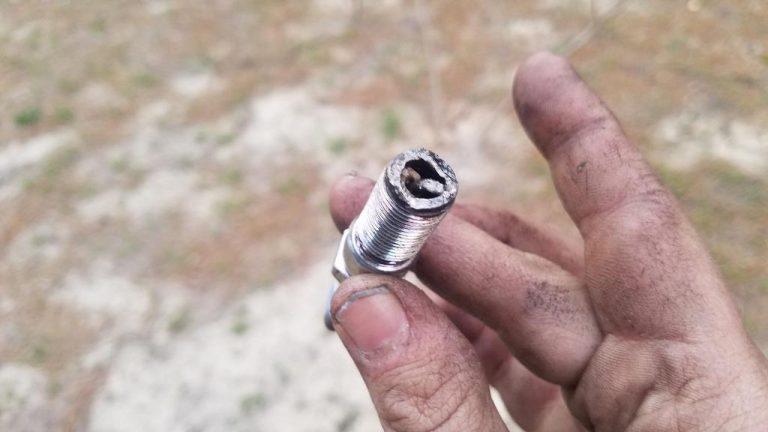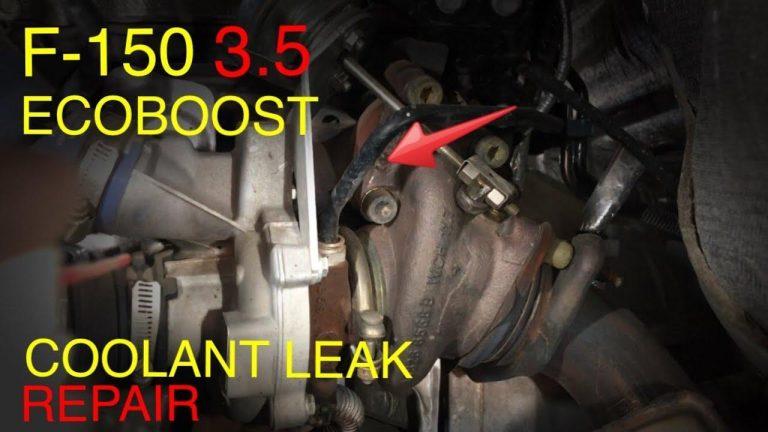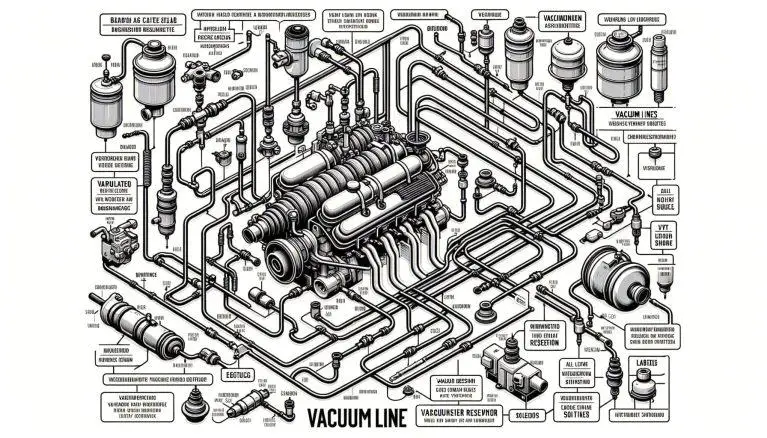Can a Clogged Catalytic Converter Cause a Misfire? Uncover the Truth
Yes, a clogged catalytic converter can cause a misfire. It restricts exhaust flow, leading to engine performance issues.
A catalytic converter plays a crucial role in reducing harmful emissions from your vehicle. Over time, it can become clogged due to carbon build-up or other contaminants. This blockage restricts the flow of exhaust gases, causing increased back pressure on the engine.
As a result, the engine struggles to expel exhaust gases efficiently, leading to misfires. Misfires occur when the air-fuel mixture in the engine’s cylinders fails to ignite properly. This not only affects engine performance but can also lead to further mechanical issues if left unchecked. Regular maintenance and timely replacement of the catalytic converter can prevent these problems.

Credit: carfromjapan.com
Catalytic Converter Basics
The catalytic converter is a crucial part of a car’s exhaust system. It helps reduce harmful emissions and keeps the air cleaner.
Understanding its function and common symptoms of clogging can help diagnose issues early. This can prevent further damage to the vehicle.
Function In The Exhaust System
The catalytic converter transforms harmful gases into less harmful ones. It uses a chemical reaction to change carbon monoxide, hydrocarbons, and nitrogen oxides. The result is water vapor and carbon dioxide, which are less harmful.
It sits between the engine and the muffler. It ensures that the gases leaving your vehicle are cleaner. This keeps the environment safer and reduces pollution.
Common Symptoms Of Clogging
A clogged catalytic converter can cause several problems. Here are some common symptoms:
- Check Engine Light: The car’s computer detects an issue and turns on the light.
- Reduced Engine Performance: The engine struggles to get enough power.
- Rattling Noise: A rattling noise may come from beneath the car.
- Bad Smell: A rotten egg smell indicates sulfur build-up.
Recognizing these symptoms early can save costly repairs. Always pay attention to any unusual signs from your vehicle.
Understanding Misfires
Misfires can be a headache for car owners. They often indicate a serious issue within the engine. But what exactly is a misfire? And what causes them? Let’s explore these questions to understand misfires better.
Definition Of A Misfire
A misfire occurs when the engine’s cylinder fails to ignite the air-fuel mixture. This can lead to a loss of power and poor performance. Misfires can be felt as a sudden jerk or hesitation in the vehicle.
Common Causes Of Misfires
Many factors can cause a misfire. These include:
- Faulty spark plugs: Old or damaged spark plugs can cause misfires.
- Ignition coil issues: Problems with the ignition coil can disrupt the spark.
- Fuel system problems: A clogged fuel injector can prevent fuel from reaching the cylinder.
- Vacuum leaks: Leaks in the vacuum system can lead to an improper air-fuel mixture.
- Clogged catalytic converter: A clogged catalytic converter can restrict exhaust flow.
Each of these issues can cause the engine to misfire. Regular maintenance helps prevent many of these problems.
Connection Between Catalytic Converter And Misfire
A catalytic converter plays a key role in reducing vehicle emissions. It converts harmful gases into less harmful ones. But, a clogged catalytic converter can cause serious engine problems. One of these problems is a misfire. A misfire happens when the fuel-air mixture in the engine’s cylinders does not ignite properly.
A clogged catalytic converter restricts exhaust flow. This leads to increased back pressure in the engine. The increased pressure disrupts the engine’s normal operation. This disruption can cause misfires in the engine cylinders. Understanding this connection can help identify and fix engine problems early.
How A Clog Affects Engine Performance
A clogged catalytic converter can drastically reduce engine performance. Here are a few key ways:
- Increased Back Pressure: The clog causes exhaust gases to build up. This results in higher pressure in the exhaust system.
- Reduced Power: The engine has to work harder to push exhaust gases out. This leads to a loss of power.
- Poor Fuel Efficiency: The engine uses more fuel to maintain performance. This reduces fuel efficiency.
- Overheating: Excessive back pressure can cause the engine to overheat. This can lead to severe damage.
Signs Your Catalytic Converter Is Causing A Misfire
Identifying a clogged catalytic converter early can prevent further damage. Look for these signs:
- Check Engine Light: The check engine light may turn on. This is often the first sign of a problem.
- Rough Idle: The engine may idle roughly or stall. This happens due to disrupted exhaust flow.
- Loss of Power: The vehicle may struggle to accelerate. This is due to reduced engine performance.
- Unusual Smells: A rotten egg smell can indicate a clogged converter. This smell comes from sulfur in the exhaust.
- Poor Fuel Economy: The car may use more fuel than usual. This is a sign of reduced efficiency.
Recognizing these signs can help diagnose and fix the problem promptly. Regular maintenance can prevent clogs and ensure the catalytic converter works efficiently.

Credit: www.youtube.com
Diagnosing A Clogged Catalytic Converter
Identifying a clogged catalytic converter is crucial for your car’s health. A clogged catalytic converter can cause engine misfires. Accurate diagnosis helps in ensuring smooth vehicle operation.
Diagnostic Tools And Techniques
Using the right diagnostic tools is essential. Here are some recommended tools:
- OBD-II Scanner: This tool reads error codes from your car’s computer.
- Infrared Thermometer: Measures temperature differences in the exhaust system.
- Exhaust Backpressure Gauge: Checks for blockages in the exhaust flow.
Follow these techniques for diagnosing:
- Plug in the OBD-II scanner to check for error codes.
- Use the infrared thermometer to measure temperatures before and after the catalytic converter.
- Attach the exhaust backpressure gauge to assess exhaust flow.
Checking For Exhaust Blockages
To check for blockages, follow these steps:
- Lift your car using a jack and secure it.
- Inspect the exhaust system for visible blockages.
- Use a flashlight to check the catalytic converter for debris.
Here is a simple checklist:
| Step | Description |
|---|---|
| 1 | Lift car and secure it with a jack. |
| 2 | Inspect exhaust system for visible blockages. |
| 3 | Use a flashlight to check catalytic converter. |
Ensure no debris is blocking the catalytic converter. Regular maintenance can prevent future issues.
Other Potential Misfire Causes
While a clogged catalytic converter can indeed cause a misfire, several other potential causes exist. It’s essential to identify the root cause to fix the issue effectively.
Ignition System Issues
The ignition system is crucial for engine performance. If any component fails, it can lead to a misfire. Common ignition system problems include:
- Faulty spark plugs: Worn or damaged spark plugs can’t ignite the fuel-air mixture.
- Ignition coils: Bad coils can disrupt the electrical current needed for combustion.
- Distributor cap: A cracked or damaged distributor cap can cause misfires.
Fuel Delivery Problems
Proper fuel delivery is essential for engine efficiency. Issues in the fuel delivery system can also cause misfires. Some common fuel delivery problems include:
- Clogged fuel injectors: Dirty or clogged injectors can disrupt the fuel flow.
- Fuel pump failure: A failing fuel pump can’t provide enough pressure.
- Fuel filter blockage: A blocked fuel filter restricts the fuel flow to the engine.
Understanding these potential causes can help in diagnosing and fixing engine misfires. Always check these components when troubleshooting a misfire.
Preventative Measures
Taking care of your car can prevent a clogged catalytic converter. This also helps avoid misfires. Follow these tips to keep your car in good shape.
Regular Maintenance Tips
Regular maintenance is key. Here are some tips:
- Change your oil every 3,000 to 5,000 miles.
- Replace the air filter every 12,000 miles.
- Check your spark plugs and replace them as needed.
- Use the right fuel for your engine.
- Inspect the exhaust system for leaks.
Signs To Watch For
Watch for these signs of a clogged catalytic converter:
- Check Engine Light: This light may come on.
- Reduced Engine Performance: Your car may feel sluggish.
- Rattling Noise: You might hear a rattling noise.
- Bad Smell: A sulfur smell can indicate trouble.
- Poor Fuel Economy: Your car uses more fuel.
Early detection can save you time and money.
Repair And Replacement Options
Understanding the repair and replacement options for a clogged catalytic converter can save time and money. Knowing when to clean or replace the converter is crucial. It helps maintain the vehicle’s performance.
When To Clean Vs. Replace
Deciding between cleaning and replacing a catalytic converter depends on its condition. A slightly clogged converter may benefit from cleaning. This can often restore its function.
Signs of a converter needing cleaning:
- Reduced engine power
- Increased emissions
- Check engine light
A heavily clogged converter will need replacement. Persistent issues indicate this necessity.
Signs of a converter needing replacement:
- Severe misfires
- Rattling noises
- Failed emissions test
Cost Considerations
Costs can vary for cleaning and replacing a catalytic converter. Cleaning is usually cheaper. It ranges from $100 to $200.
Replacing a catalytic converter is more expensive. It can cost between $500 and $2,200. This depends on the vehicle model and labor costs.
Cost breakdown:
| Service | Cost Range |
|---|---|
| Cleaning | $100 – $200 |
| Replacement | $500 – $2,200 |
Always consider the vehicle’s age and value before deciding. Sometimes, replacing the vehicle is more economical.
Credit: www.quora.com
Expert Advice And Resources
Dealing with car issues can be stressful, especially if you’re not a mechanic. One common question is whether a clogged catalytic converter can cause a misfire. This section provides expert advice and resources to help you understand and tackle this problem.
Consulting A Mechanic
Consulting a mechanic is essential for diagnosing complex car issues. A professional can accurately identify if a clogged catalytic converter is causing your misfire. Here are some steps to follow:
- Schedule an appointment with a trusted mechanic.
- Describe the symptoms your car is experiencing.
- Ask for a detailed diagnostic report.
- Follow the mechanic’s advice on repairs or replacements.
Experienced mechanics use specialized tools to pinpoint the exact cause of a misfire. Their expertise ensures the problem gets fixed correctly.
Helpful Online Resources
If visiting a mechanic is not an immediate option, online resources can be very helpful. Many websites and forums provide valuable information on car issues.
| Resource | Description |
|---|---|
| Auto Repair Forums | Communities where car enthusiasts discuss various car problems. |
| Mechanic Blogs | Articles written by experts on diagnosing and fixing car issues. |
| Video Tutorials | Step-by-step guides on how to check and fix a catalytic converter. |
These resources can provide a basic understanding and sometimes even offer DIY solutions.
Here are some steps to make the best use of these online resources:
- Search for reputable websites and forums.
- Read articles and watch videos related to catalytic converters.
- Join car enthusiast communities to ask questions and get advice.
Using these resources can help you gain knowledge and possibly identify the issue yourself.
Frequently Asked Questions
What Are The Symptoms Of A Bad Clogged Catalytic Converter?
A clogged catalytic converter shows symptoms like poor engine performance, reduced acceleration, dark exhaust smoke, and a sulfuric smell.
Can A Bad Catalytic Converter Cause Misfires?
Yes, a bad catalytic converter can cause misfires. It restricts exhaust flow, leading to engine performance issues.
How Do I Unclog A Catalytic Converter?
Clean a catalytic converter by using a specialized cleaner. Pour the cleaner into the gas tank. Drive for 30 minutes.
What Codes Will A Clogged Catalytic Converter Throw?
A clogged catalytic converter typically triggers codes P0420, P0430, P0300, and P0171. These codes indicate efficiency issues and engine misfires.
Conclusion
A clogged catalytic converter can indeed cause a misfire. Regular maintenance is crucial for engine health. Address issues promptly to avoid costly repairs. Keep your vehicle running smoothly by checking the catalytic converter. Proper care ensures better performance and longevity.
Remember, a well-maintained car is a reliable car.





